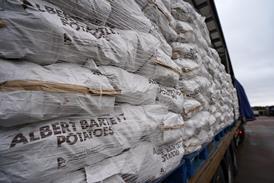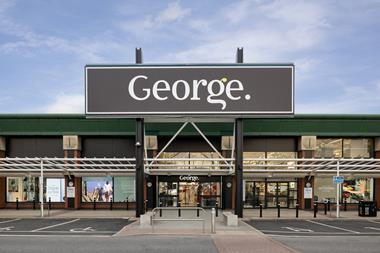Plans to impose tax strip stamps on Scotch whisky have been slammed by MPs.
An influential parliamentary inquiry - the Commons Scottish Affairs Select Committee - says the proposal for strip stamps on every bottle of spirits is fundamentally flawed.
The Chancellor announced the strip stamps in his last Budget in a bid to crackdown on an estimated £1bn a year fraud in excise duty.
But in a hard-hitting report last week, the cross-party group unanimously claimed the move was a mistake.
Levels of fraud were far lower than had been suggested by either Customs and Excise or the Treasury, insisted the select committee - and the cost of implementing the stamps would be far higher.
They would put genuine jobs at risk while crooks were likely to find ways of counterfeiting stamps to make the bootlegged liquor look legitimate.
During their investigations the Scottish MPs cross-examined a range of experts and looked at how similar strip stamp schemes had fared overseas.
Some foreign schemes, they discovered, had been scrapped because they did not work.
Among the last witnesses were front-line investigators whose evidence left the MPs even more convinced that the Chancellor’s controversial proposals would prove futile. Some members of the committee left a confidential briefing convinced Customs officials were under the cosh due to their lack of front-line resources.
And that, they suspected, was why the spirits industry was being forced to collect and pay the tax, regardless of the risk of damage to trade.
One committee member, Orkney and Shetland LibDem MP Alistair Carmichael, suggested that the real reason for strip stamps was to save the cost of the manpower required to police the present system effectively.
However, Chancellor Gordon Brown has made it clear he intends pressing ahead with the scheme. He underlined his determination when he told the industry that its best course was to co-operate and make its introduction of strip stamps as painless as possible.
To that end he pledged to freeze spirit duty until after the next election.
Bill Doult
An influential parliamentary inquiry - the Commons Scottish Affairs Select Committee - says the proposal for strip stamps on every bottle of spirits is fundamentally flawed.
The Chancellor announced the strip stamps in his last Budget in a bid to crackdown on an estimated £1bn a year fraud in excise duty.
But in a hard-hitting report last week, the cross-party group unanimously claimed the move was a mistake.
Levels of fraud were far lower than had been suggested by either Customs and Excise or the Treasury, insisted the select committee - and the cost of implementing the stamps would be far higher.
They would put genuine jobs at risk while crooks were likely to find ways of counterfeiting stamps to make the bootlegged liquor look legitimate.
During their investigations the Scottish MPs cross-examined a range of experts and looked at how similar strip stamp schemes had fared overseas.
Some foreign schemes, they discovered, had been scrapped because they did not work.
Among the last witnesses were front-line investigators whose evidence left the MPs even more convinced that the Chancellor’s controversial proposals would prove futile. Some members of the committee left a confidential briefing convinced Customs officials were under the cosh due to their lack of front-line resources.
And that, they suspected, was why the spirits industry was being forced to collect and pay the tax, regardless of the risk of damage to trade.
One committee member, Orkney and Shetland LibDem MP Alistair Carmichael, suggested that the real reason for strip stamps was to save the cost of the manpower required to police the present system effectively.
However, Chancellor Gordon Brown has made it clear he intends pressing ahead with the scheme. He underlined his determination when he told the industry that its best course was to co-operate and make its introduction of strip stamps as painless as possible.
To that end he pledged to freeze spirit duty until after the next election.
Bill Doult














No comments yet